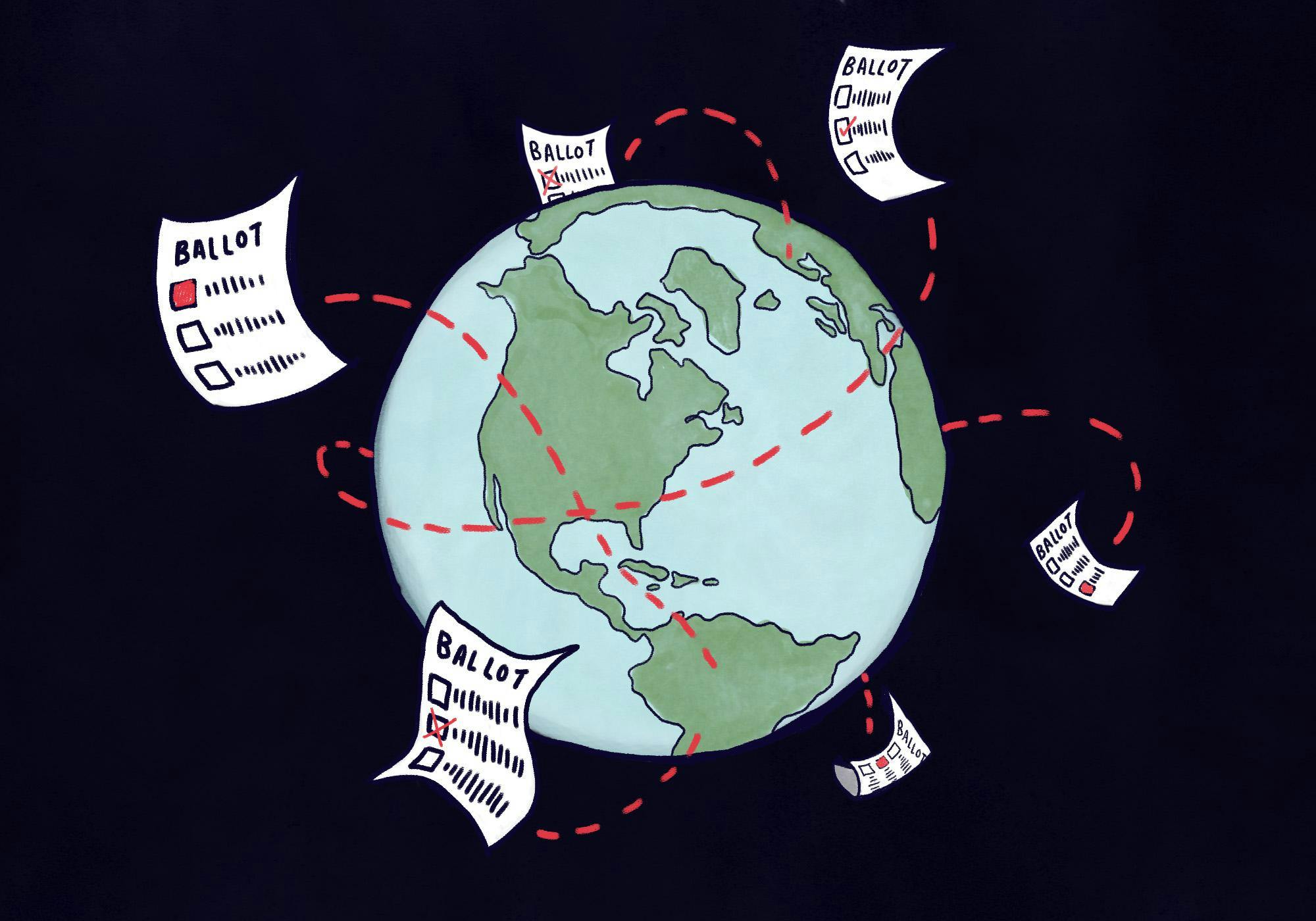As almost every publication in the nation has said for weeks, the stakes couldn’t be higher in the 2024 presidential election. MSU students aren't only worried about their own democracy, but politics on the world stage.
Sociology sophomore Maggie Frost said she has a lot of fears for her own agency if Trump is reelected.
"I am afraid of losing the right to my own body and my autonomy," Frost said. "I also am afraid of the government becoming an autocracy."
Psychology freshman David Falade said he fears Project 2025 the most, but he also said he knows Trump "is not for him."
To Falade, a Harris win would be proof of the progress America is always bragging about.
"It shows evolution," he said. "It shows we are getting better. A Black woman as president is actually showing up. It’s actual equality."
And while these domestic policies seem to matter deeply to a lot of students, issues overseas may be the deciding factors of this race.
Mohammad Khalil is the director of MSU’s Muslim Studies Program, a professor of religious studies and an adjunct professor at MSU’s College of Law.
He said a significant number of Muslim constituents are not planning on voting for Harris strictly because of the current administration’s dealings with the Israel-Hamas war.
Khalil said U.S. Muslims, including those living in the battleground state of Michigan, are engaged in serious discussions on changing the population's longstanding record of voting blue.
"Many Muslims are profoundly disturbed by the Biden-Harris administration's general support for the Netanyahu administration's decimation of Gaza following the Oct. 7 attacks. They are disturbed by, among other things, the numerous distressing images of children and other civilians who have been killed — with rubble seemingly everywhere — as a result of the Israeli strikes in Gaza."
According to Khalil, the withheld votes are meant to send a message because there is "a justifiable, widespread belief that the U.S. can and should take a more active role in de-escalating the situation."
Journalism freshman Jadyn Butler, who currently has family members living in Israel, said she does not support Trump or his foreign policies and is voting to protect not only democracy but also her loved ones.
"I am not a Trump supporter," Butler said. "A lot of the things he says scares me, but I think him having such power … it would be a dictatorship. I think foreign policy should be discussed by the people, not just one person, because we live in a democracy. Or at least we are supposed to."
Lifelong student Louise Monard-Duval is a French citizen studying abroad at MSU. When asked if she was worried about the effect of an extremist like Trump taking office again, she said the damage from the rise of right-wing extremism on European democracy had already been done.
"It’s kind of a reality I am already living in because of elections in France and Italy, and the rise of far-right parties in Germany," Monard-Duval said.
MSU associate professor of comparative politics Erica Frantz specializes in a variety of topics including, but not limited to, authoritarian politics and democratization.
Frantz said she believes America is in a unique position to set the standard for a high-functioning, multi-party democracy across the world.
"I think it's fair to say that the world is at a very critical crossroads in terms of the potential for conflicts in various regions of the world escalating and entangling other world powers," Frantz said. "Given the U.S.'s power on the global stage, the U.S. will be a major player that can influence the trajectories of these conflicts."
Frantz said this means whoever wins this presidential election will be responsible for either crafting foreign policy that de-escalates global war or puts the country in the middle of it, regarding conflicts like Israel-Hamas war, the Russo-Ukrainian war and the Sudan Civil war, amongst others.
Support student media!
Please consider donating to The State News and help fund the future of journalism.
Frantz said Harris is likely to stick to her campaign promises, should she win the presidency. She could not say the same for the opposing candidate.
"The research suggests that we can expect a lot more unpredictability from Trump, should he win and return to office," Frantz said.
She added that the Republican Party had "evolved into what we refer to as a personalist party," meaning it is linked to an individual versus a policy platform.
"The research shows that when leaders are elected to power, backed by personalist parties, the risk of executive power grabs increases, as does the chance of democratic backsliding," she said.
Discussion
Share and discuss “MSU students, faculty worry about foreign politics in the face of the election” on social media.







